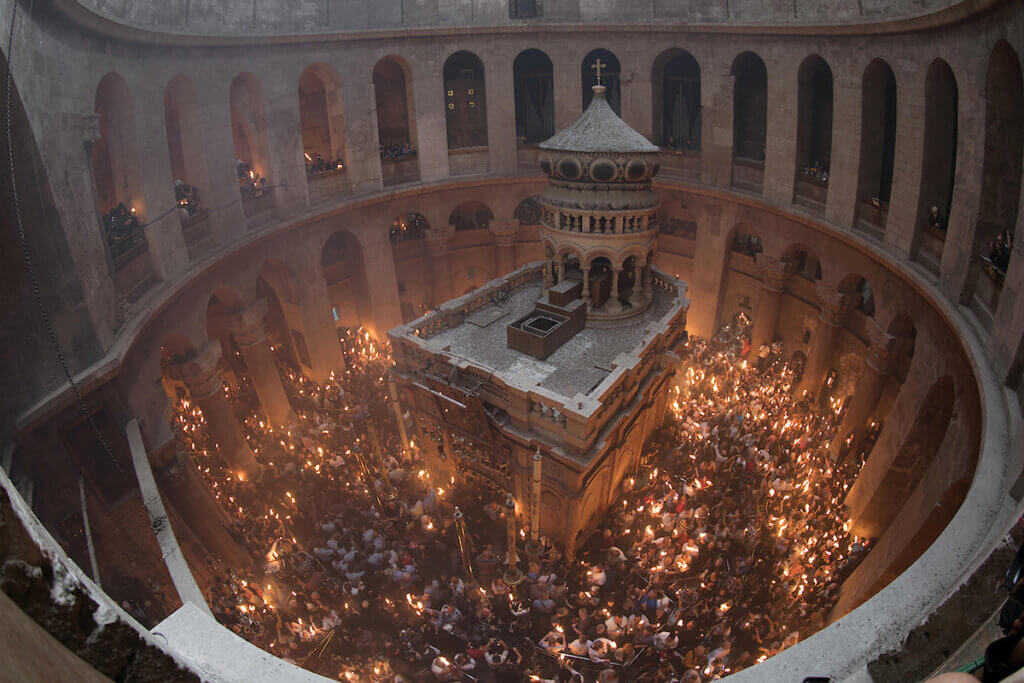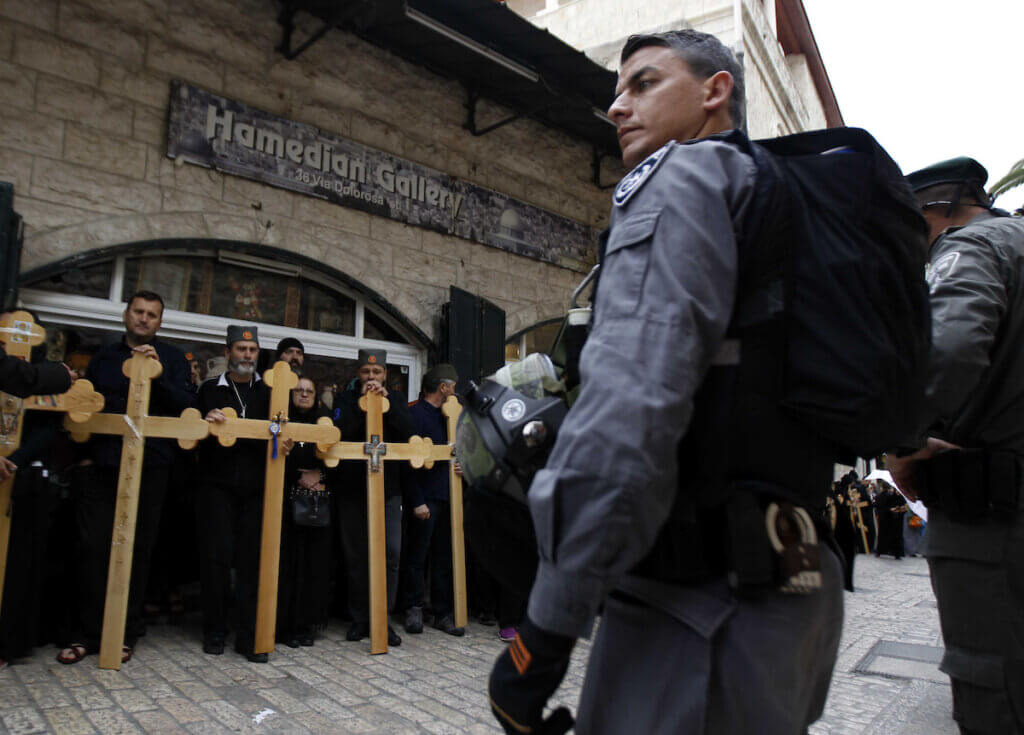Last Monday, Jerusalem’s Greek Orthodox Patriarchate issued a statement describing—and condemning—restrictions imposed by Jerusalem police on the numbers of Palestinian Christians that may enter the Church of the Holy Sepulchre this Saturday, one of the holiest days on the Christian calendar. According to the statement, police will allow only one thousand people to enter the church—usually attended by thousands on this day—and only five hundred people to enter the Old City to reach the church’s grounds. “The Patriarchate believes that there is no justification for these additional unjust restrictions, and affirms its explicit, clear and complete rejection of all restrictions,” the statement reads.
The Easter Vigil, which begins after sunset on Holy Saturday, is one of the Christian Church’s most moving and celebratory liturgies. In the Old City’s Church of the Holy Sepulchre—also known to Palestinians as the Church of the Resurrection—a priest emerges from the presumed tomb in which the crucified Christ was buried and from which he was raised, carrying a fire that is passed to the gathered congregation. Hence the name, Holy Light Saturday. Worshippers then take that fire out into the night and on to their many homes and congregations throughout Israel and Palestine in celebration of the resurrection.

The Patriarchate’s statement echoes a message that has been increasingly voiced by Jerusalem’s Heads of Churches over the past few months: “For many years, participating in prayers and even having access to churches in the Old City, especially during Easter holidays, has become very difficult for our congregations and our people in general, due to police unilaterally enforced restrictions and its violence against believers who insist on exercising their natural divine right to worship.”
“Previously,” the statement continues, “we had cooperated with different Christian bodies and leaders to bring our case to the international, domestic and judicial levels, and we also coordinated with the police themselves, with the aim of preventing the police from continuing their unacceptable practices, but unfortunately the promises were great and what actually took place on the ground was not even remotely close to those promises.” Instead of reversing these practices, the statement charges, “the police have recently informed the Patriarchate of additional new unilateral measures that increase restrictions on Holy Fire Saturday.”
In addition to expressing its anger—“The Patriarchate is fed up with police restrictions on freedom to worship”—the Patriarchate announced “by the power of the Lord, that it will not compromise its right to provide spiritual services… that prayers will be held as usual by the Patriarchate and its priests, hoping that believers are able to participate.” The church’s congregations were urged to “uphold our historical heritage through participating in the rituals and celebrations of Easter and Holy Fire Saturday this year in the Church of Holy Sepulchre and its vicinity.”
In a statement issued by a coalition of more than 30 national church communions and organizations, including Catholic, Orthodox, Protestant, and Evangelical traditions, Churches for Middle East Peace (CMEP) affirmed that it “stands in solidarity with the sacred churches of Jerusalem, opposes the police restrictions, and prays for the safety and the ability of all spiritual pilgrims to be able to worship freely in Jerusalem during this holy season.” The CMEP statement calls for “an end to all violence and a renewed commitment to peaceful coexistence and the sacredness of the Holy City to two people groups—Israelis and Palestinians—and the three Abrahamic faith traditions of Jews, Christians, and Muslims.”
In a press release issued by the World Council of Churches in response to the Greek Patriarchate’s statement, acting WCC General Secretary the Rev. Prof. Dr. Ioan Sauca declared, “Jerusalem is sacred for all three monotheistic religions, and access to Jerusalem is an inalienable right for all people of these faiths. Christians have been living on this land and witnessing to the resurrection of Jesus Christ for more than 2000 years. The resurrection is at the heart of our Christian faith and at the heart of all Christian communities in the world. We cannot accept measures that challenge the fundamental rights of our churches to celebrate this centre point of our faith.”



Doesn’t Israel have something in its “constitution” about freedom of religion?